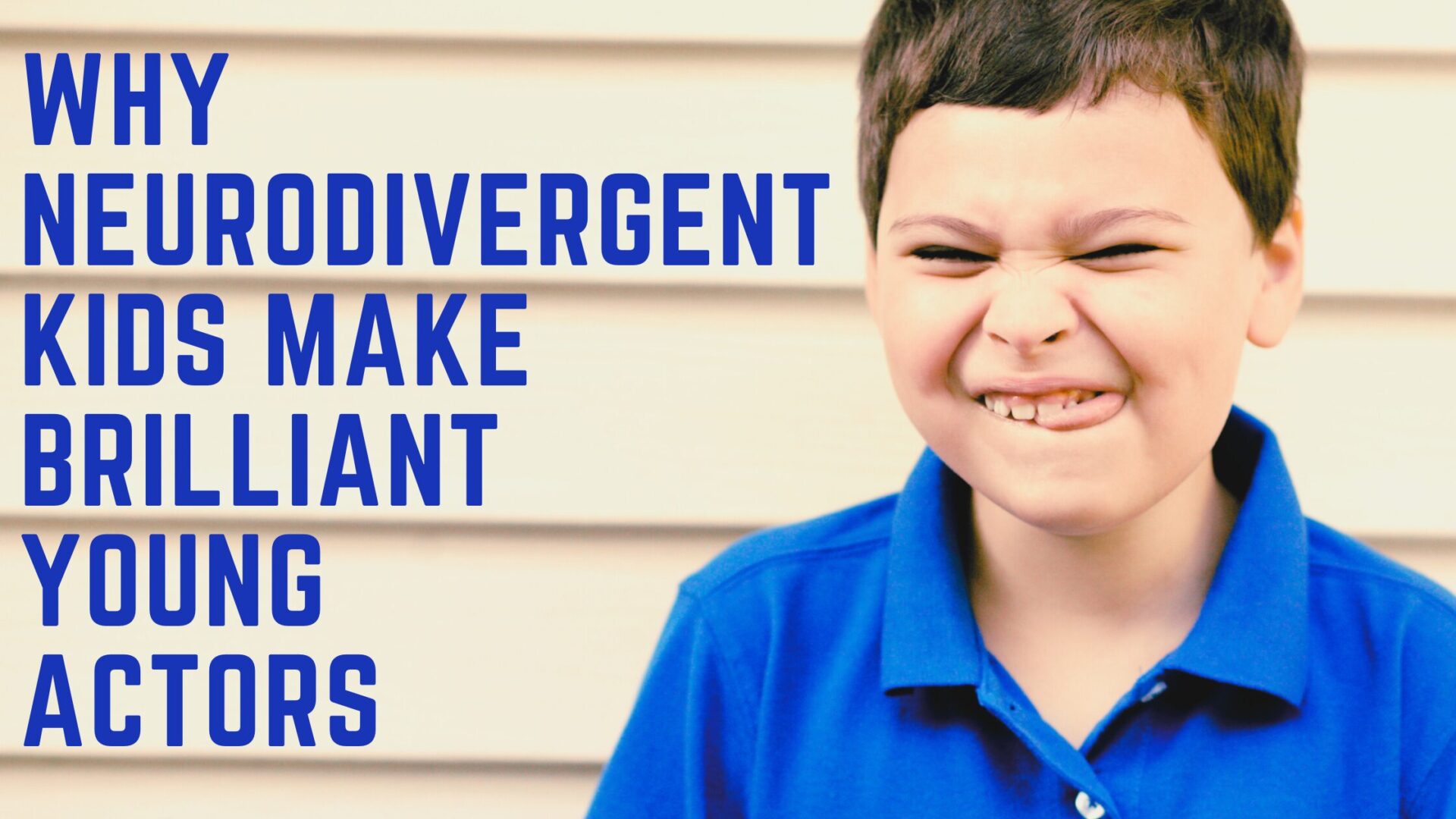
🎭 From Meltdowns to Monologues: Why Neurodivergent Kids Make Brilliant Young Actors
By Melanie Ash (BA HONS/ALAM), Founder of Meladrama Acting School & CHAOS Talent Agency
When I opened Meladrama in 2005, I didn’t start with a vision board or a business plan. I started with a gut instinct—a belief that every child deserves to feel safe, seen, and celebrated.
That belief came from personal experience. I’m a survivor of CSA and DV in childhood and I know first-hand what it feels like to grow up afraid, unsure, and constantly on edge. I also know how powerful it is when someone finally makes you feel safe.
That’s why I created Meladrama. Not just a drama school—but a sanctuary. A place where neurodivergent children and those who’ve experienced trauma can find their voice and use it powerfully.
💛 What Makes Us Different
Meladrama started with four kids in a Preston church hall 20 years ago. Now we run weekly classes in Preston, Chorley, Warrington, Wigan, and online, working with over 200 young people every week.
About 35% of our students have special educational needs or are neurodivergent—and many come from the care system or have experienced trauma. And here’s the amazing part: so many of them are now working child actors, booking real jobs in TV and film.
They’re not just “included”—they’re leading.
🎬 The Industry Is Ready
For years, the acting industry chased polished, perfect, scripted kids. Not anymore. Now, casting directors are asking for authenticity. For real faces. For raw emotion. For kids who bring something honest and exciting to the screen.
Our neurodivergent students deliver that in spades—not despite who they are, but because of it.
🤝 How We Welcome Every Child
We start building trust the moment a parent reaches out. Before any child attends a free taster, I ask for any details families want to share—diagnosis, trauma history, sensory needs, or just a chat to ease any worries.
And in 2025, we’ve introduced personalised welcome videos—warm greetings from me, my team, and a few confident students to help settle nerves before day one.
We buddy up every new child with a student who’s walked a similar path—someone who gets it. And when nerves hit (and they do), I show the child I’m calling Mum or Dad, right then and there, on speakerphone. That little moment of connection and control often flips the switch.
In 20 years, not one child has refused to stay and give it a try.
🧠 What Trauma-Informed Practice Looks Like
I treat every child like they might be carrying something heavy. Because even if they don’t tell us, many of them are. That’s why we always:
- Allow children to sit out if needed
- Bring puzzles, art, and books for quieter engagement
- Start each session with “news”—space for feelings, stories, and connection
- Prepare students for triggers in advance (loud noises, intense themes)
- Offer alternate roles for those not ready to perform on stage
Some children are ready to act within weeks. Some take months or years. Either way, they’re never rushed or pushed. And when they do take that leap, the whole group celebrates—loudly.
🌟 Top 5 Tips for Parents & Carers of Neurodivergent Child Actors
If your child is already signed with an agent—or you’re wondering whether this world is even for them—these are the five things I’d say to you from one parent and practitioner to another:
1️⃣ Get the Right Training
🎓 A safe space is the foundation for growth.
Look for training that’s not just about performance but about emotional safety. Acting should feel exciting—not overwhelming or performative in the wrong way. Find coaches who “get it.”
2️⃣ Some Families Pause Medication—and It Works
🧘 Creativity often thrives in trusted spaces.
A few of our families pause medication over holidays or even for filming. In the right environment—like a film set—kids can focus better, feel more alive, and perform with spontaneity. Always check with your GP, but know this is something that works for some families.
3️⃣ Scripts Aren’t Always the Best Tool
🎧 Let them hear the story, not just read it.
Many of our neurodivergent students learn lines best through audio. I often record lines for them, or get them to act scenes out with a buddy. Find an agent or coach who supports this—and watch them thrive.
4️⃣ Teach Confidence Like It’s a Game
🎭 Pretending to be brave is a powerful tool.
This isn’t about masking—it’s about helping them access courage. Acting confident, even for just a moment, can help them walk into an audition, answer a casting question, or try something new. Over time, it becomes second nature.
5️⃣ Don’t Worry—The Industry Needs Your Child
🌟 Real stories need real voices.
Your child’s neurodivergence isn’t a barrier. It’s a superpower. The best performances are honest, unfiltered, and grounded in truth—and your child has that in abundance. Casting directors are no longer looking for “perfect”—they’re looking for powerful.
💬 Final Thoughts
As someone who has lived through trauma, and who’s built a life helping children feel safe, seen and celebrated—I want to say this:
Your child belongs in this world. Not just in the classroom, but on stage, on screen, and in the spotlight. The industry is changing. Families like yours are helping to change it.
And at Meladrama, we’ll be right beside you—championing your child every step of the way.
Big love,
Melanie x
Founder & Director, Meladrama Acting School & CHAOS Talent Agency
